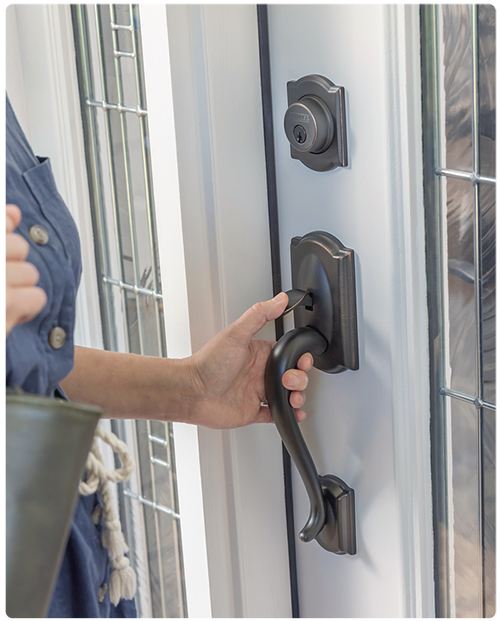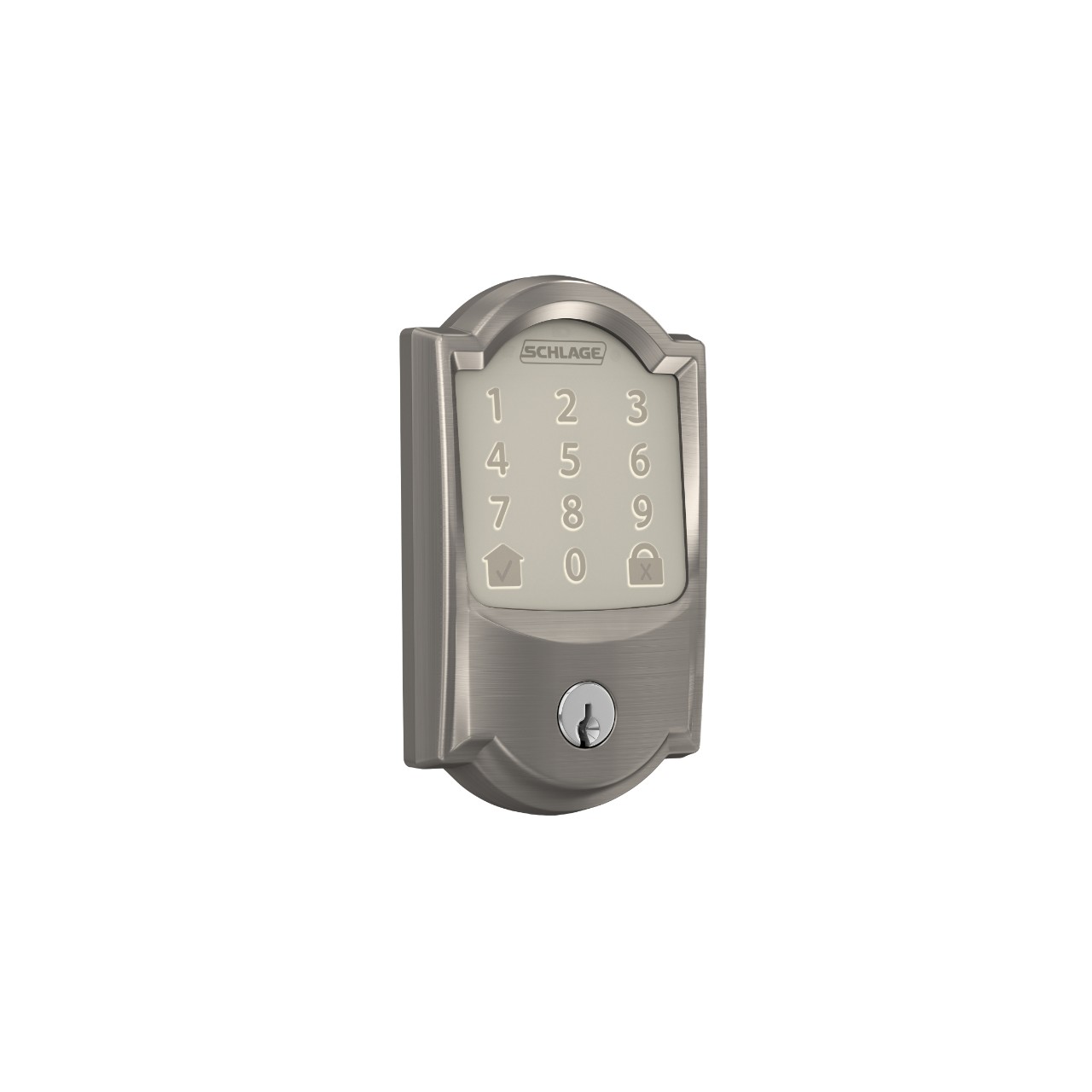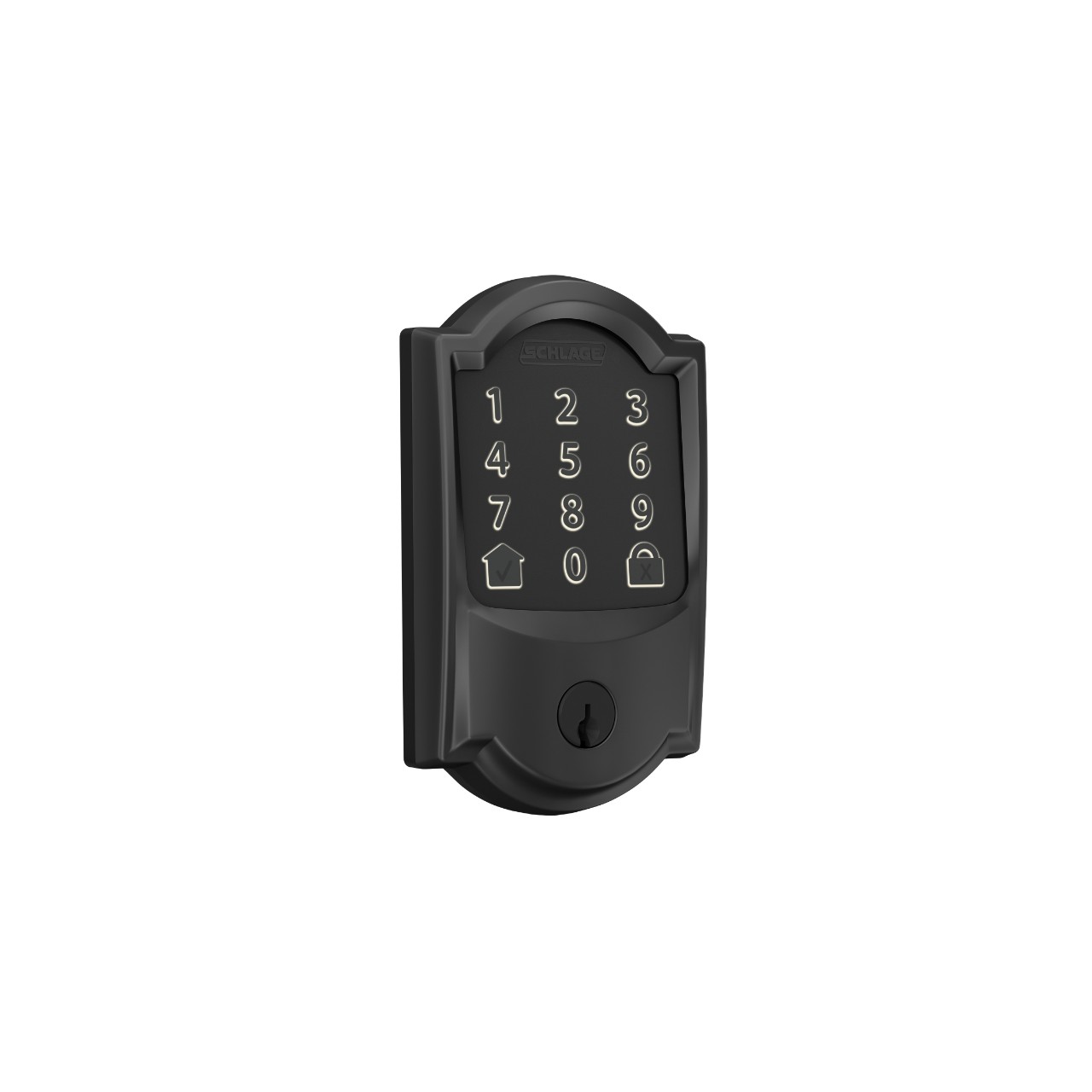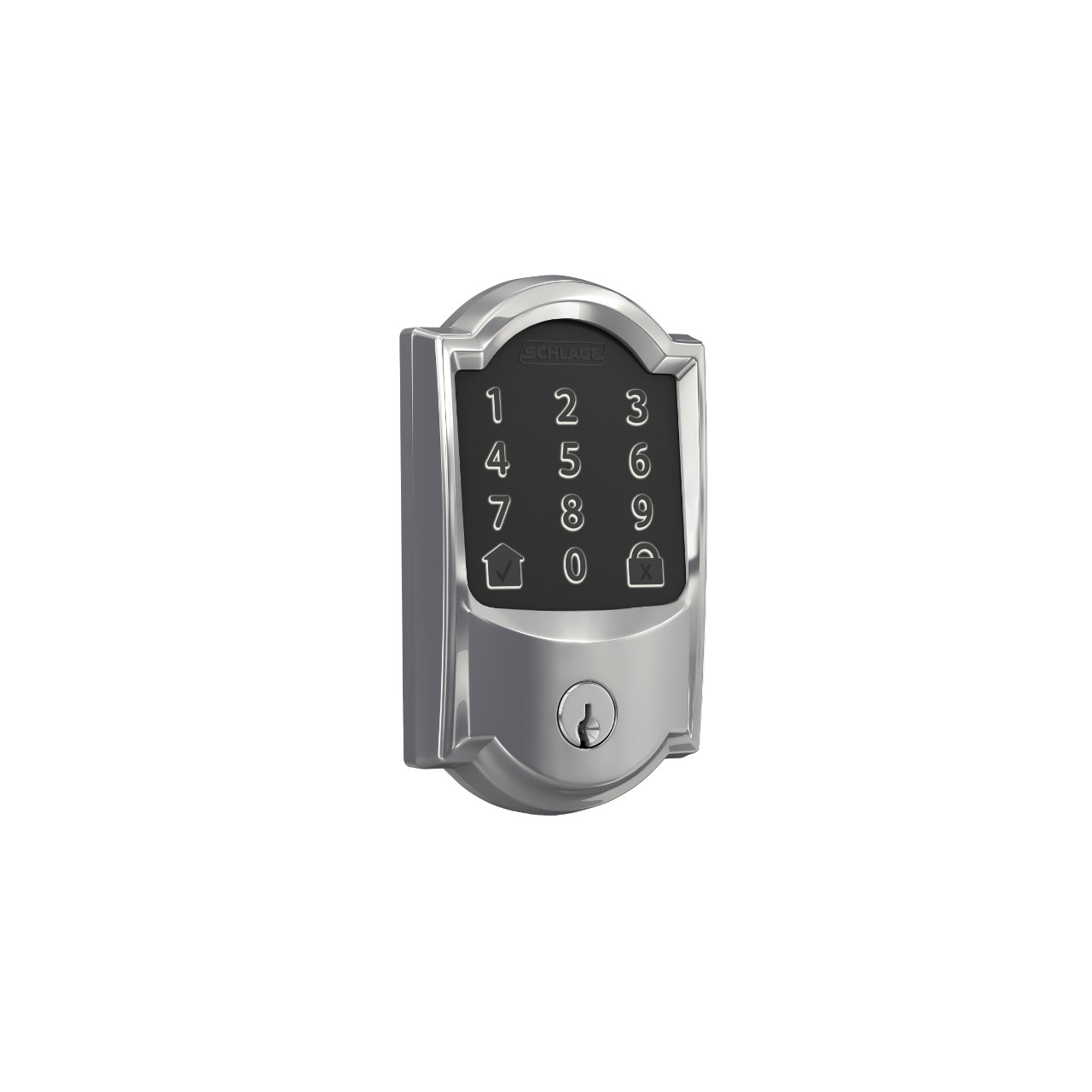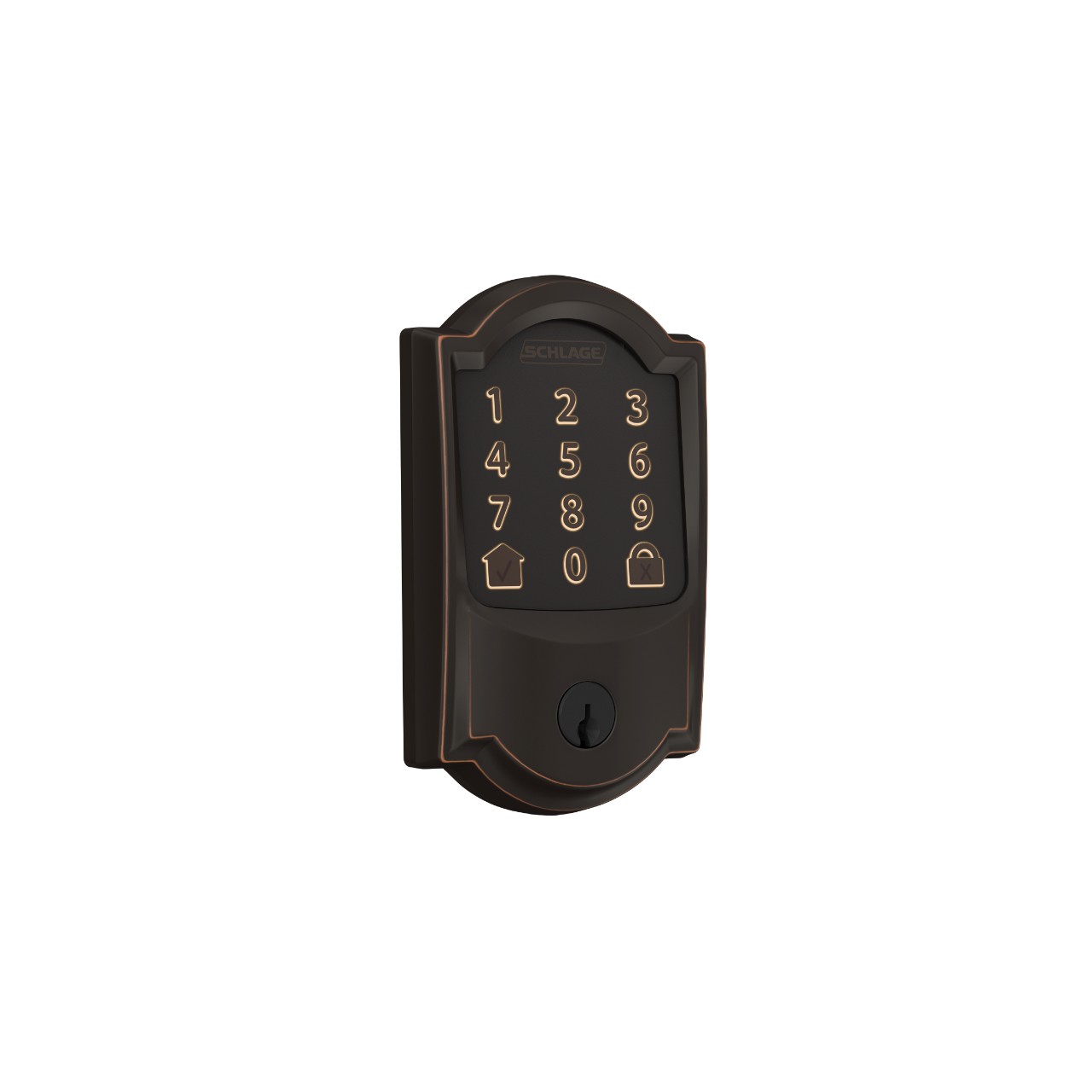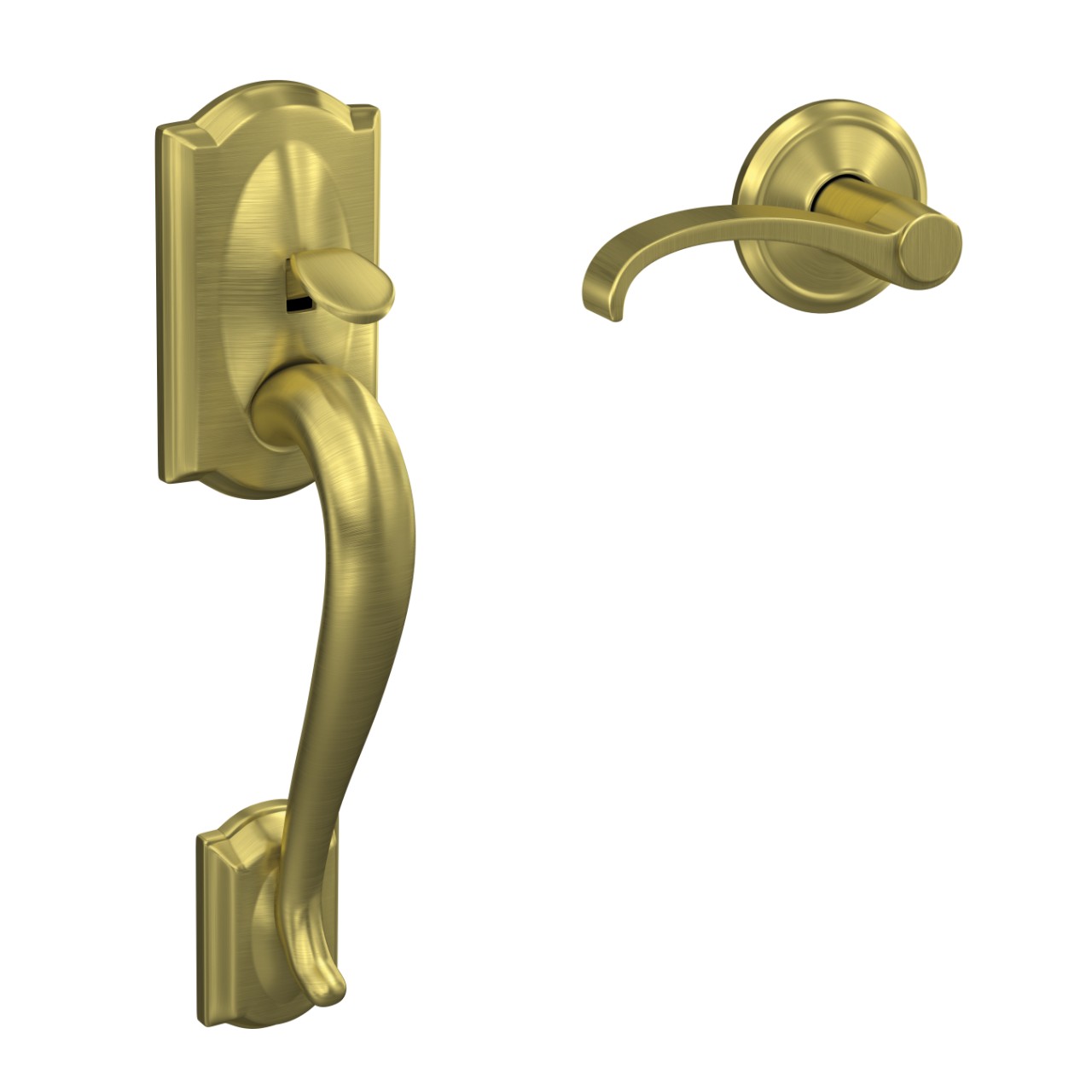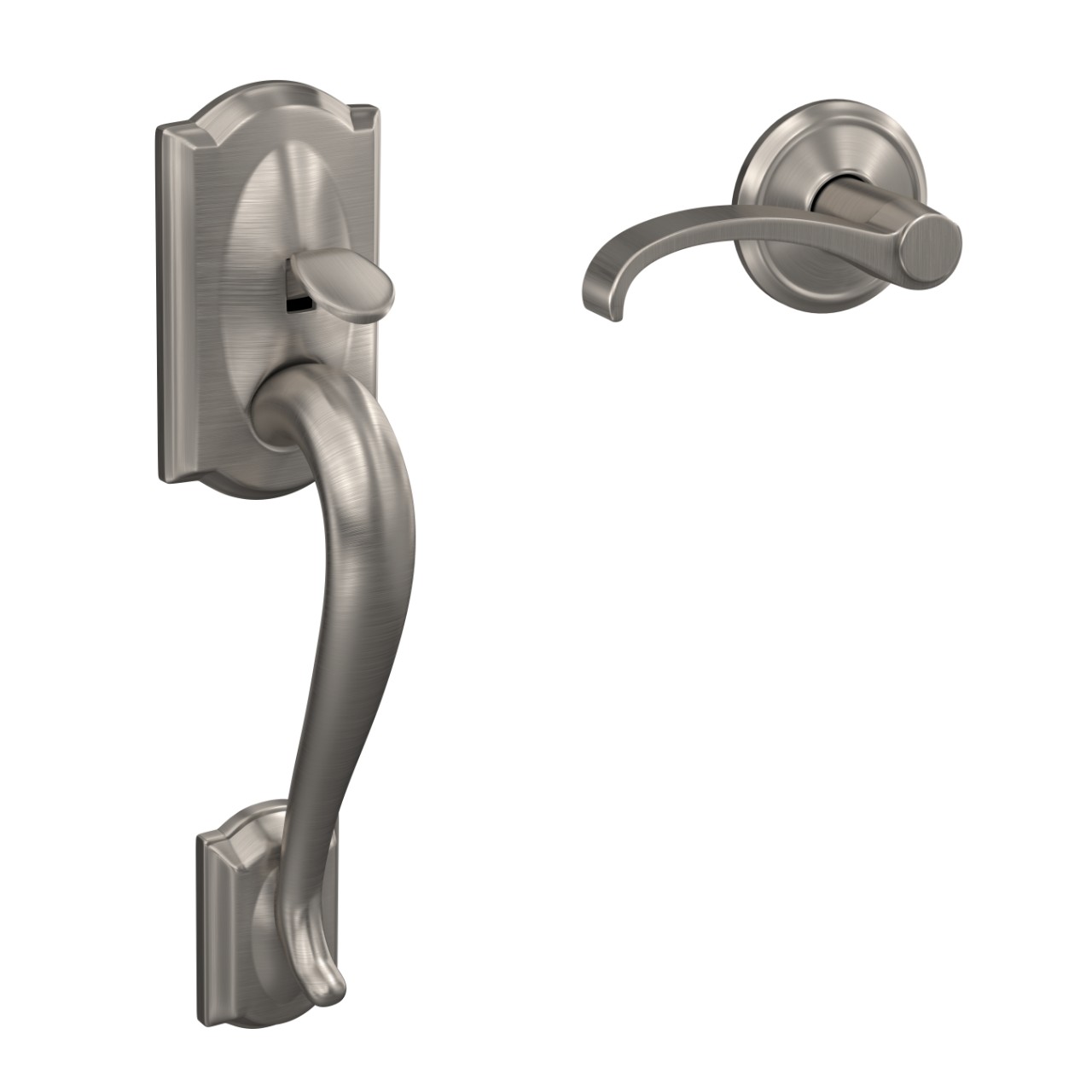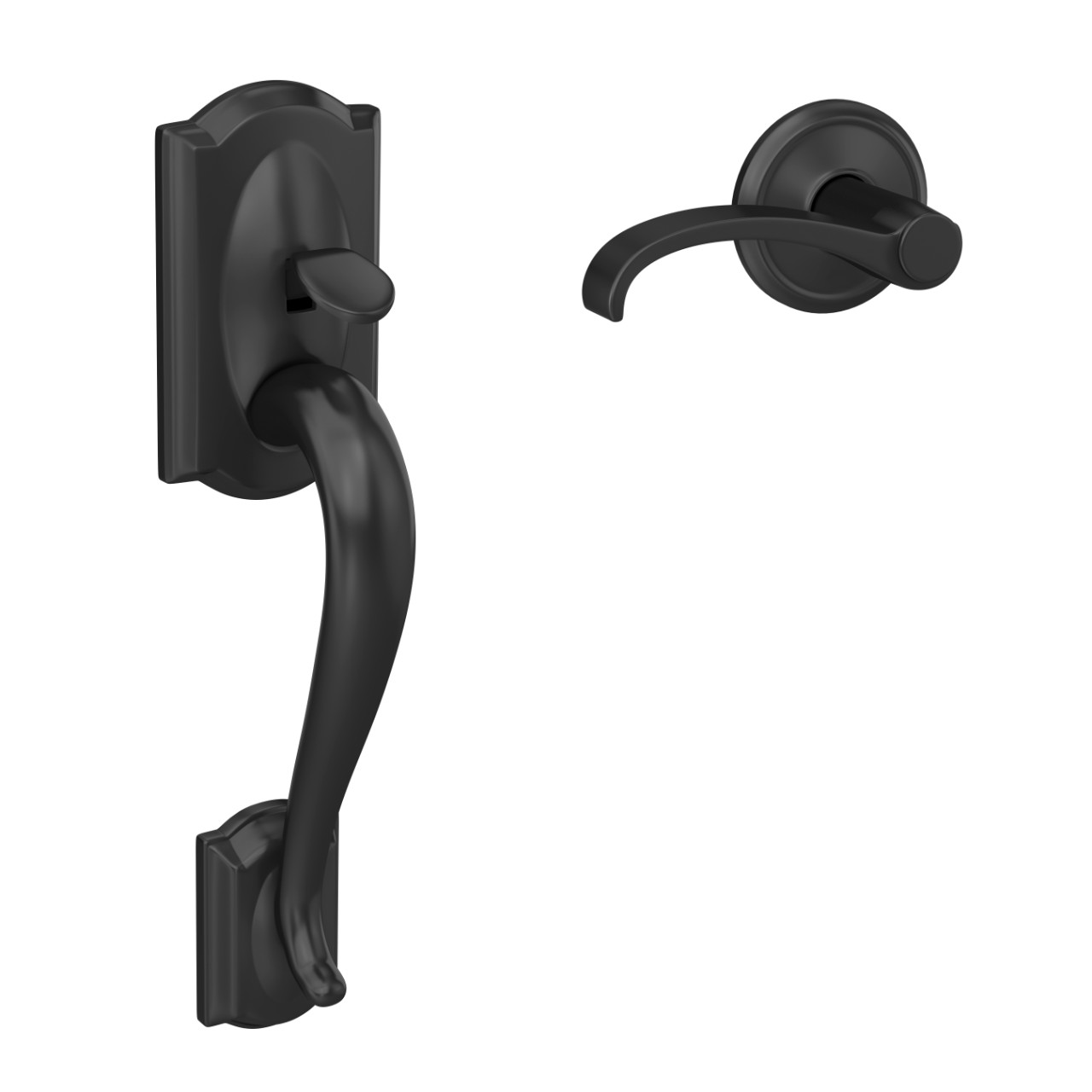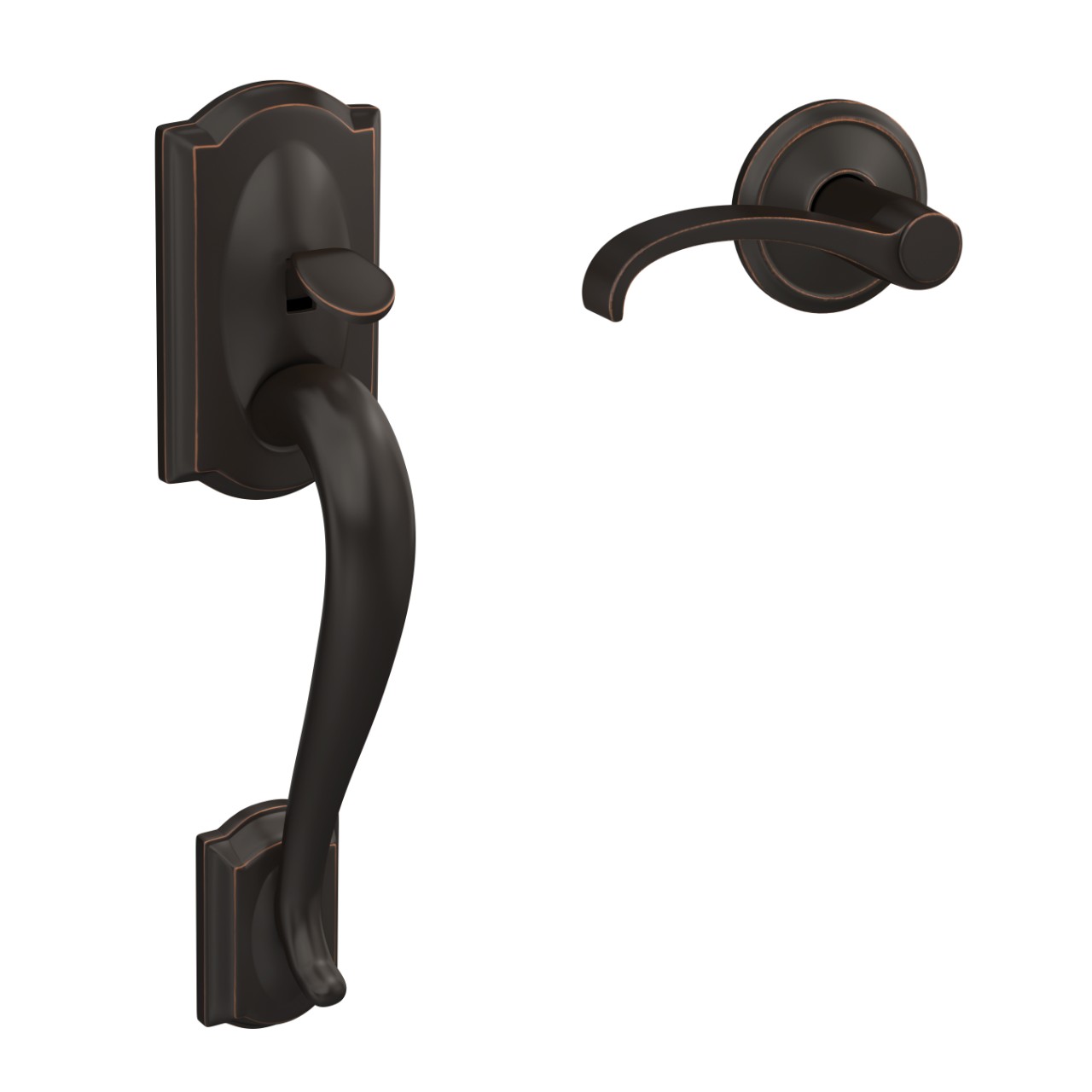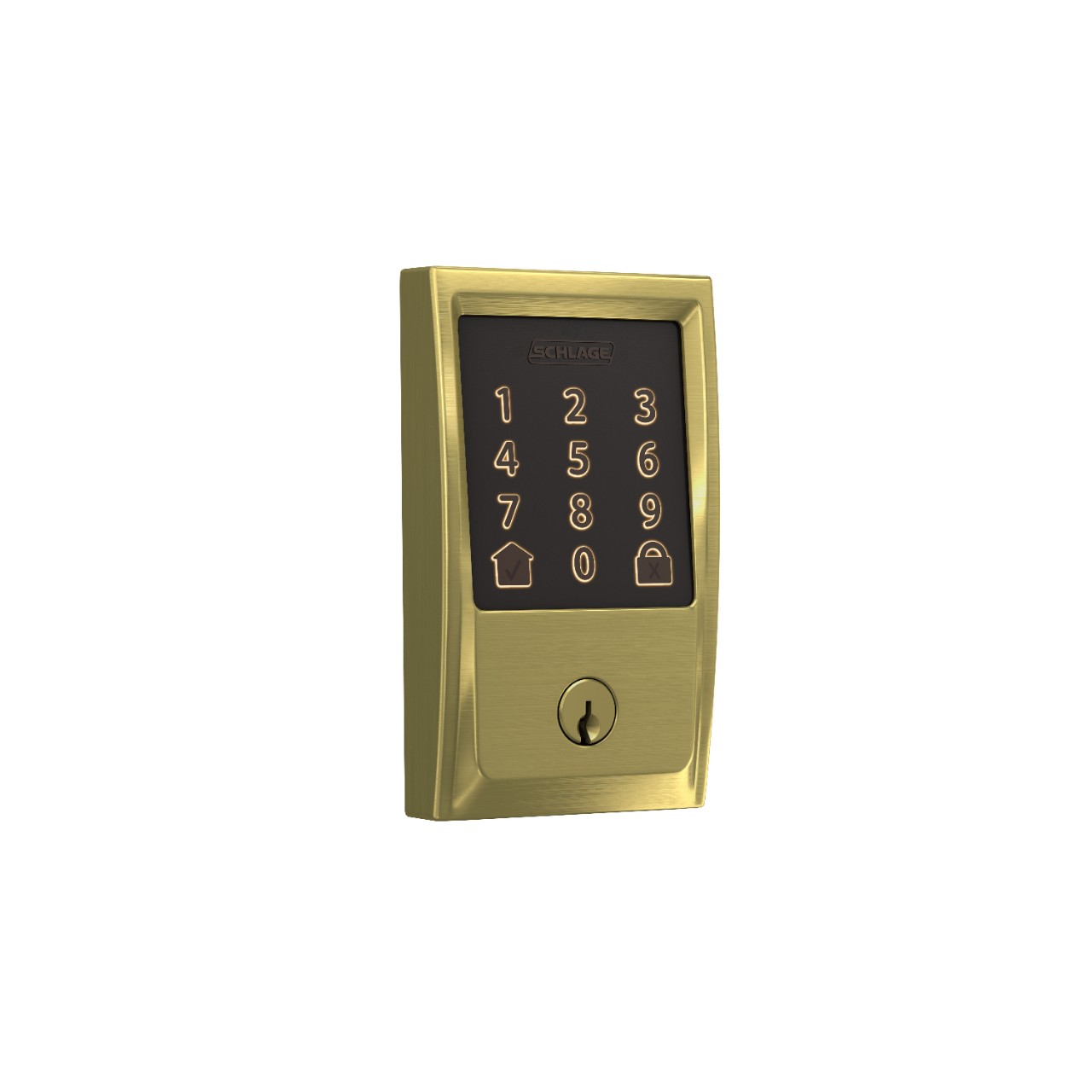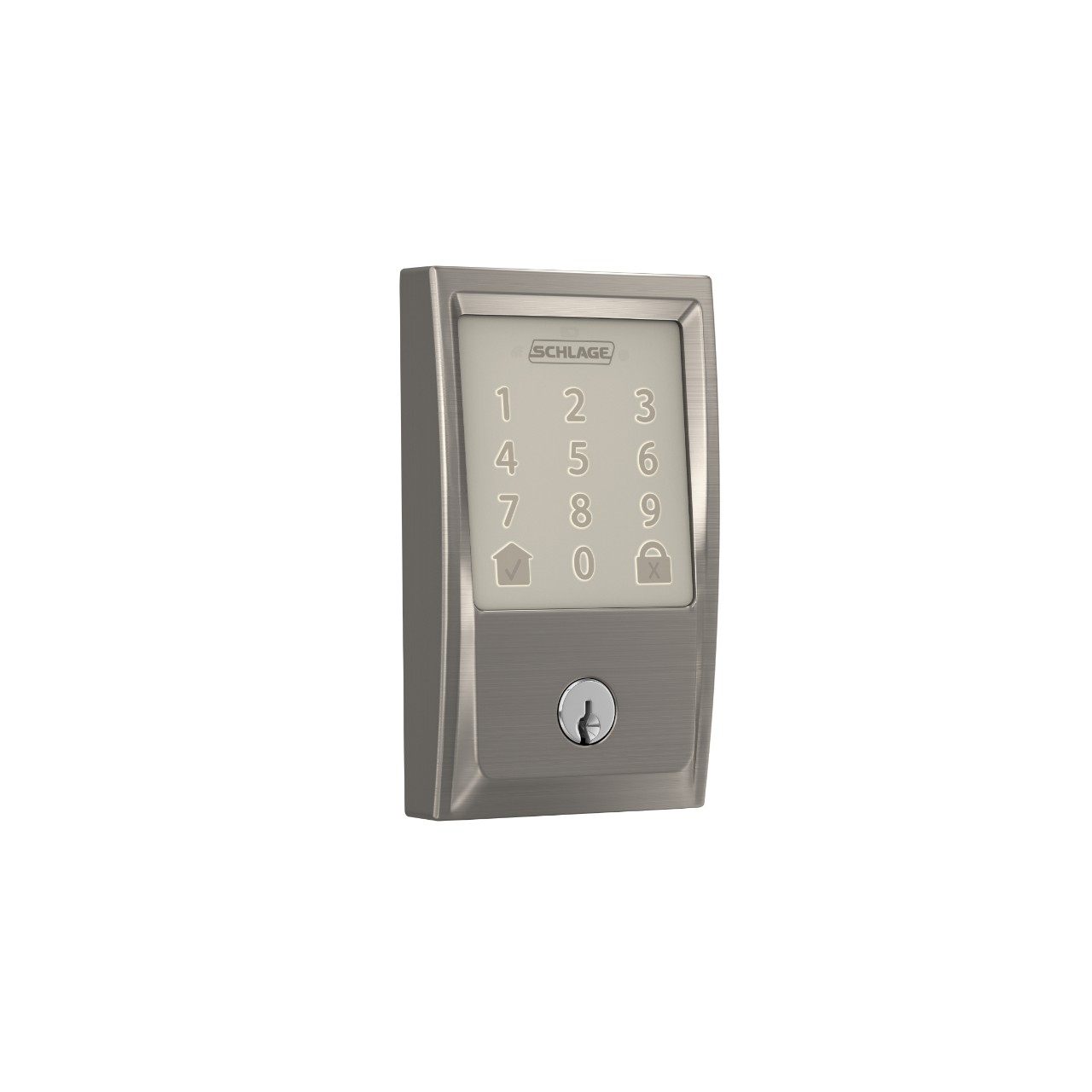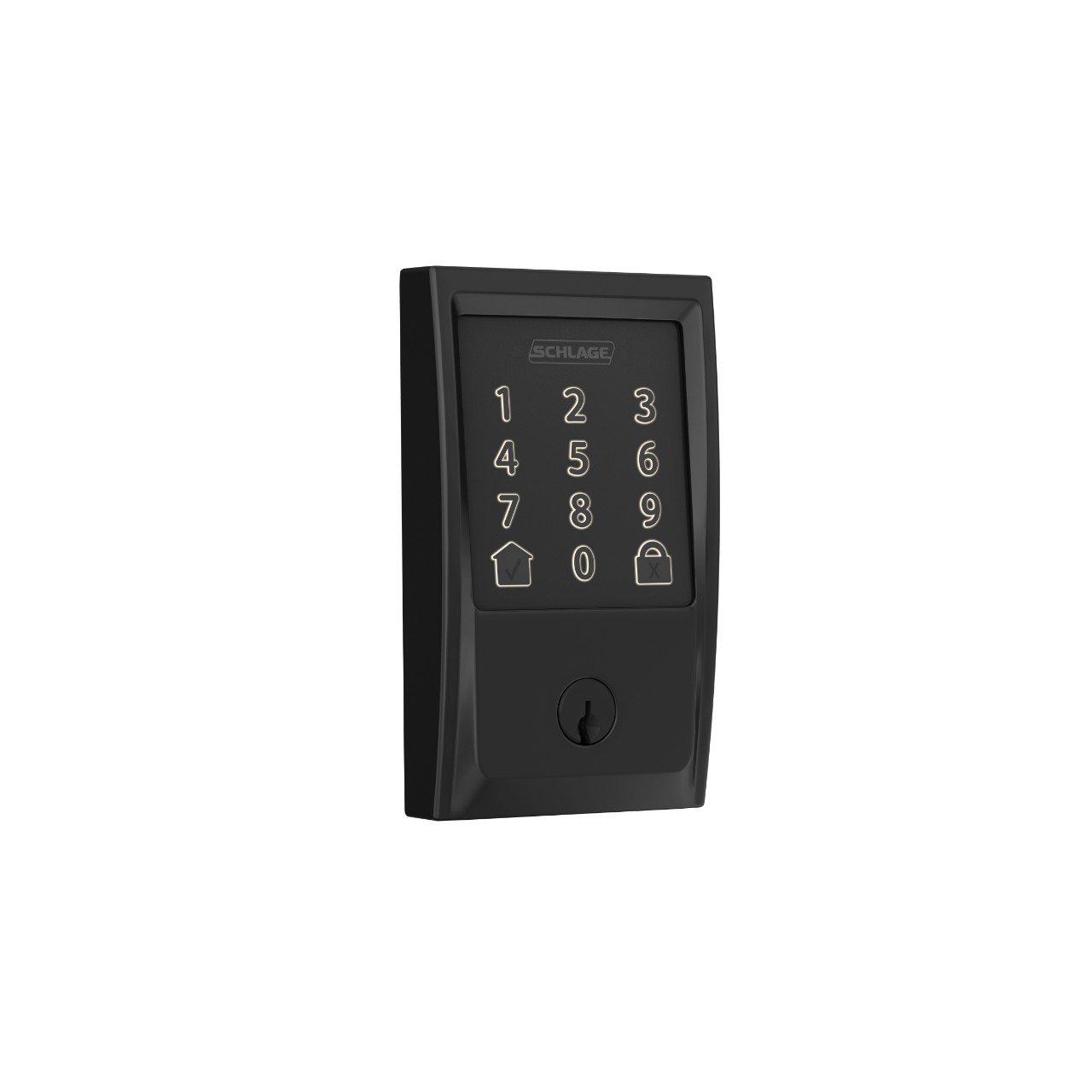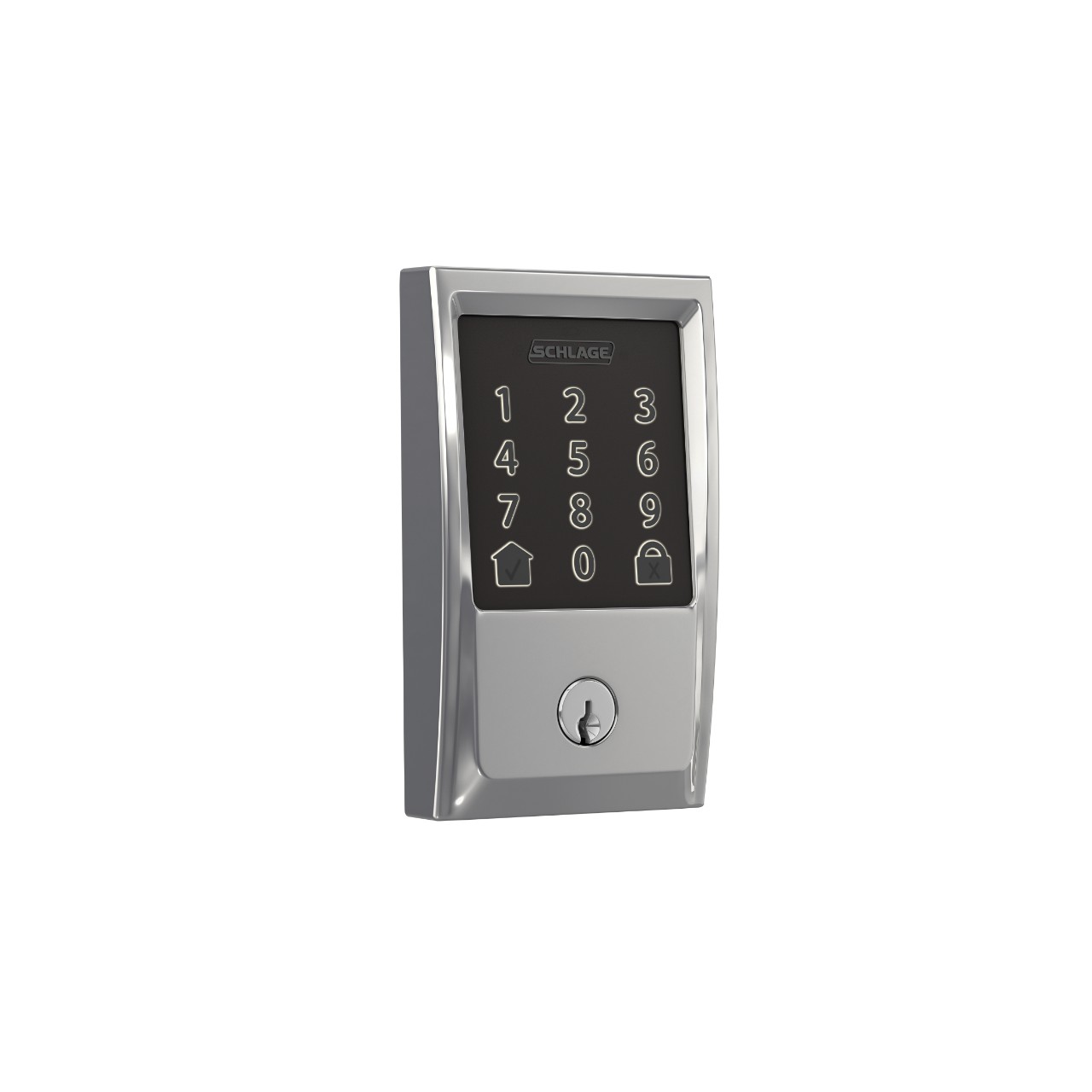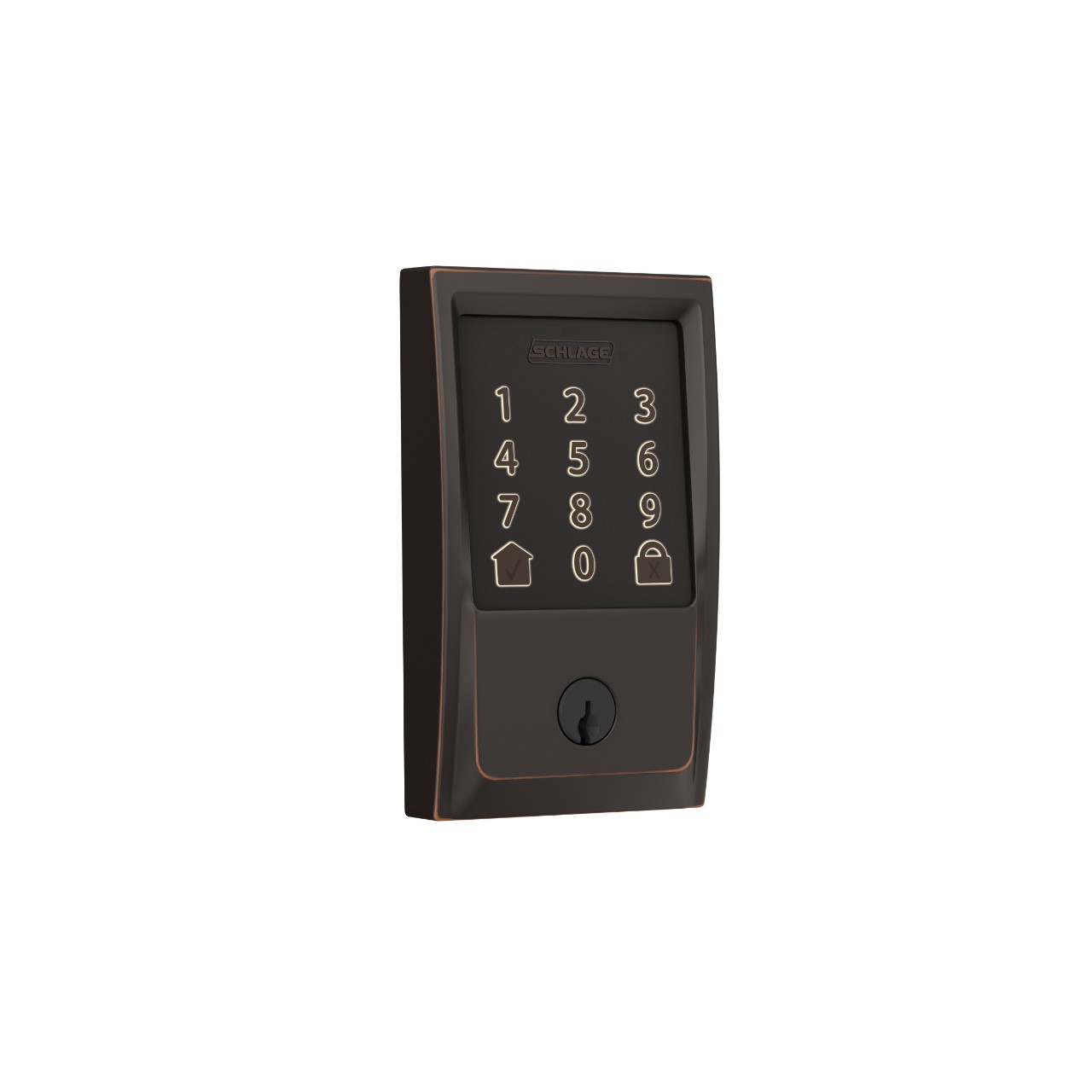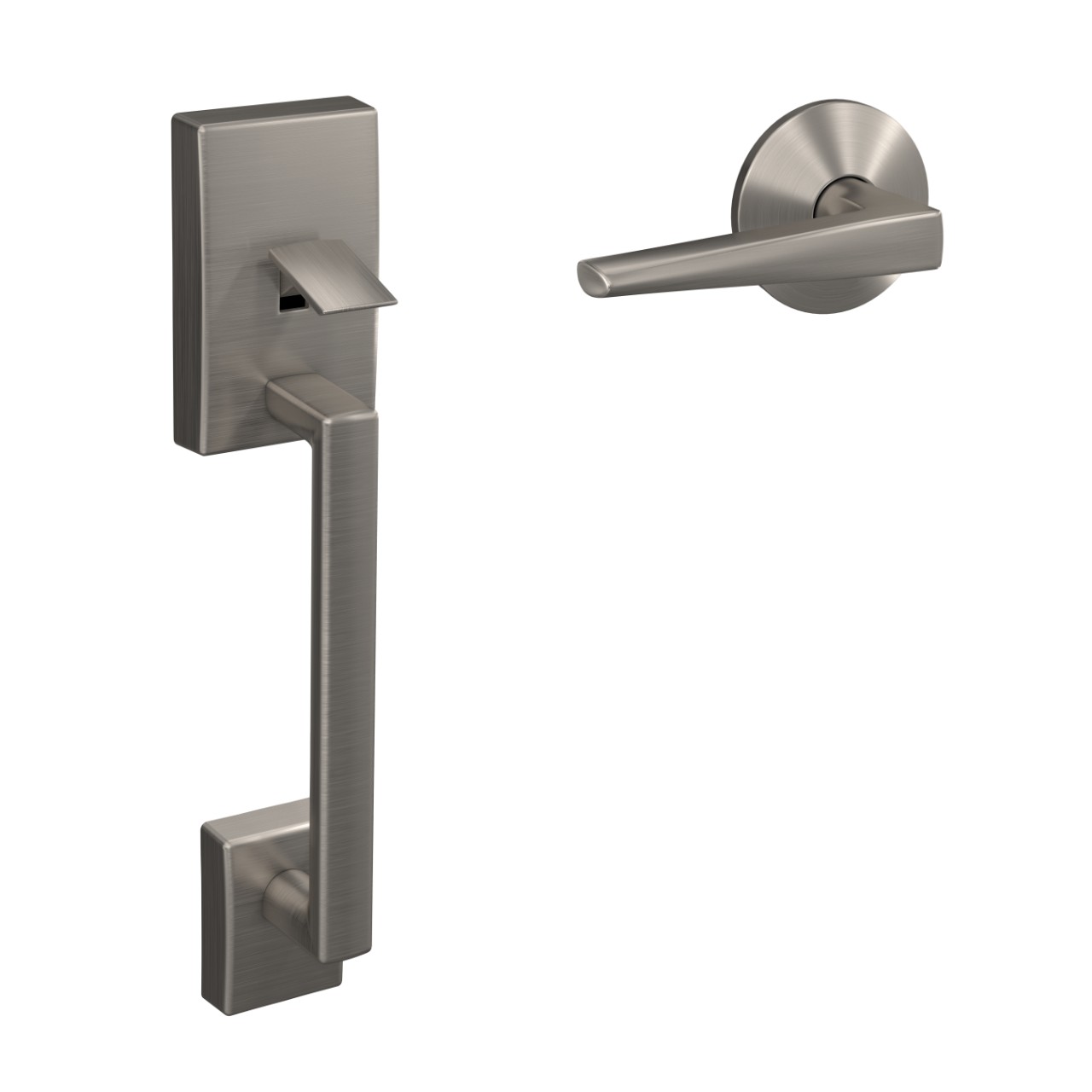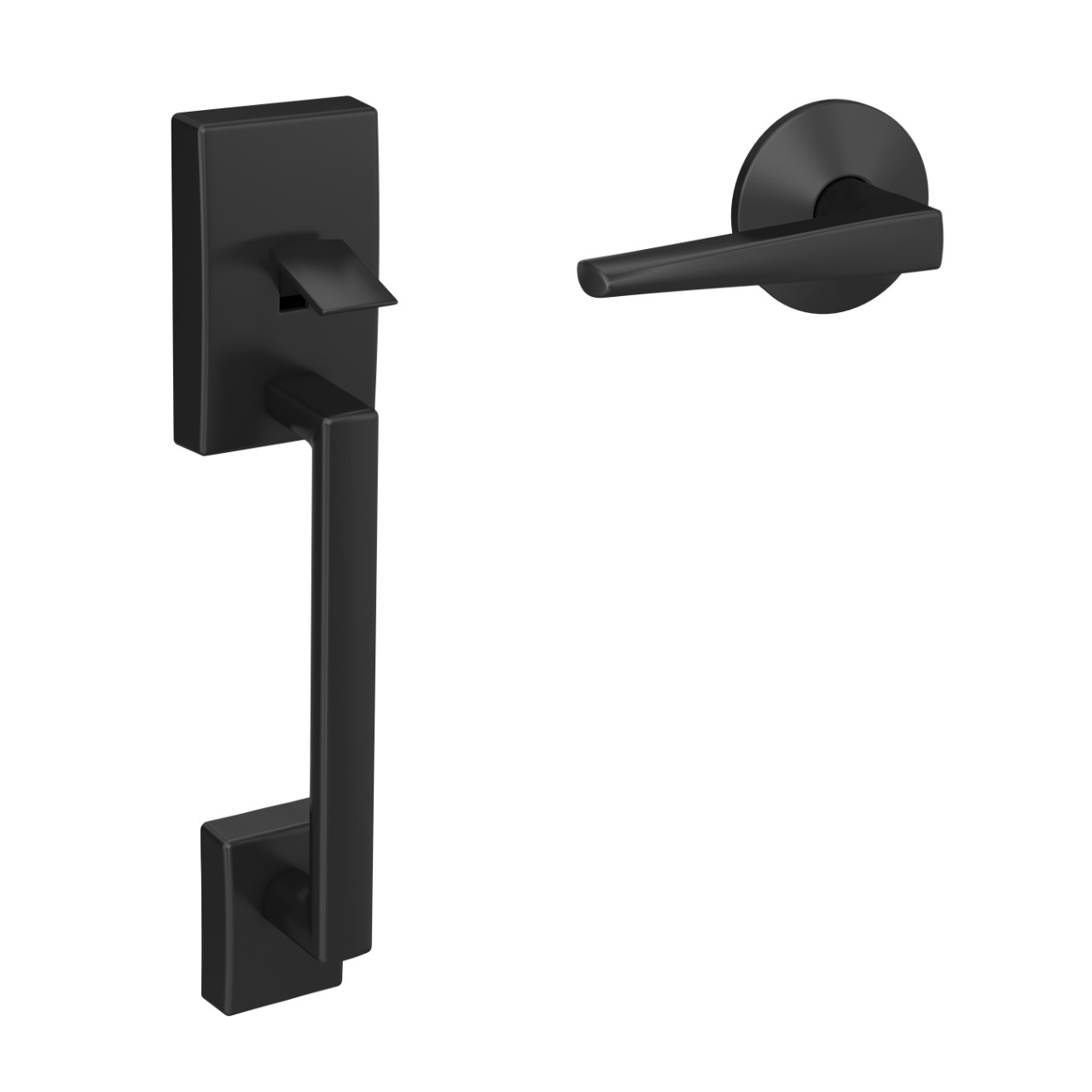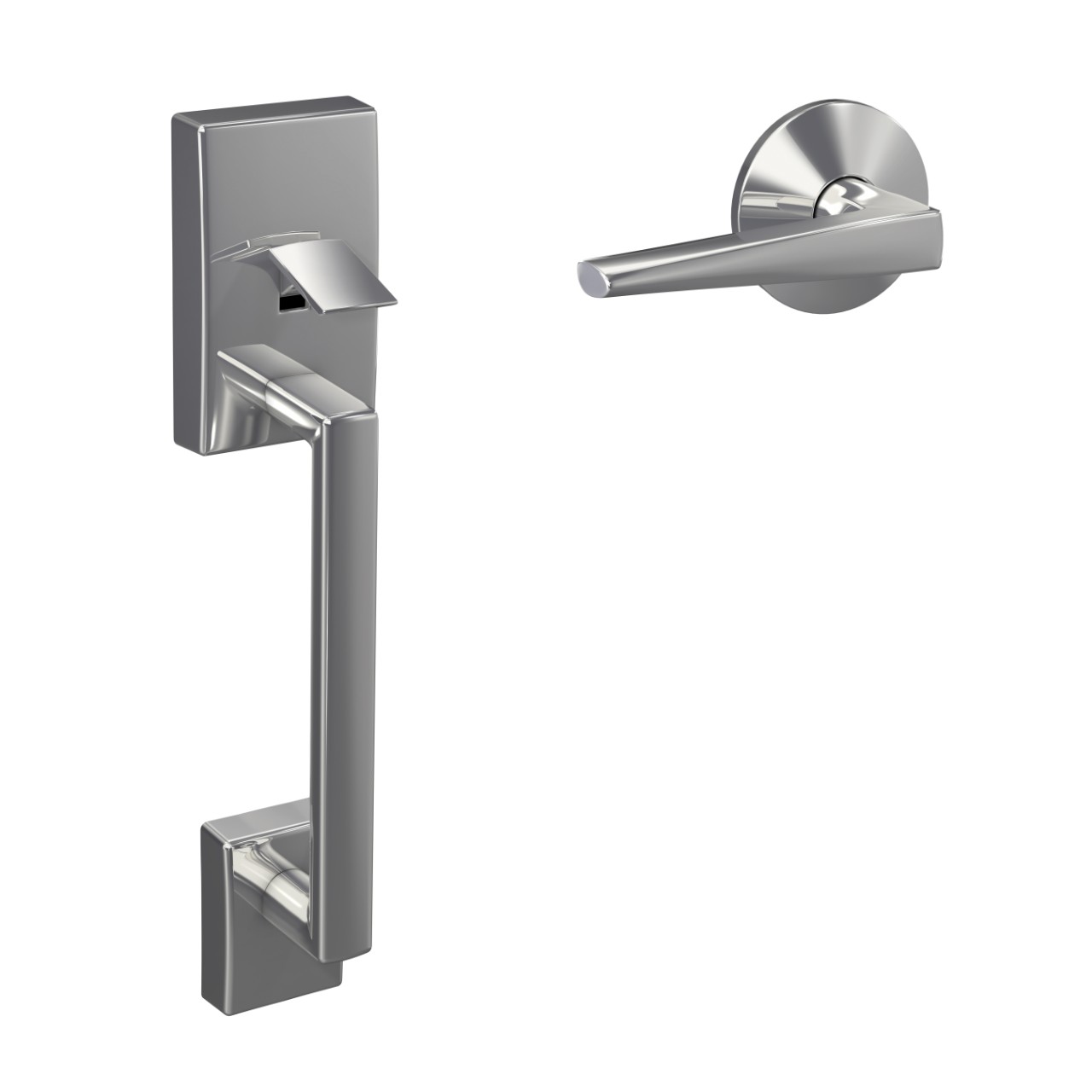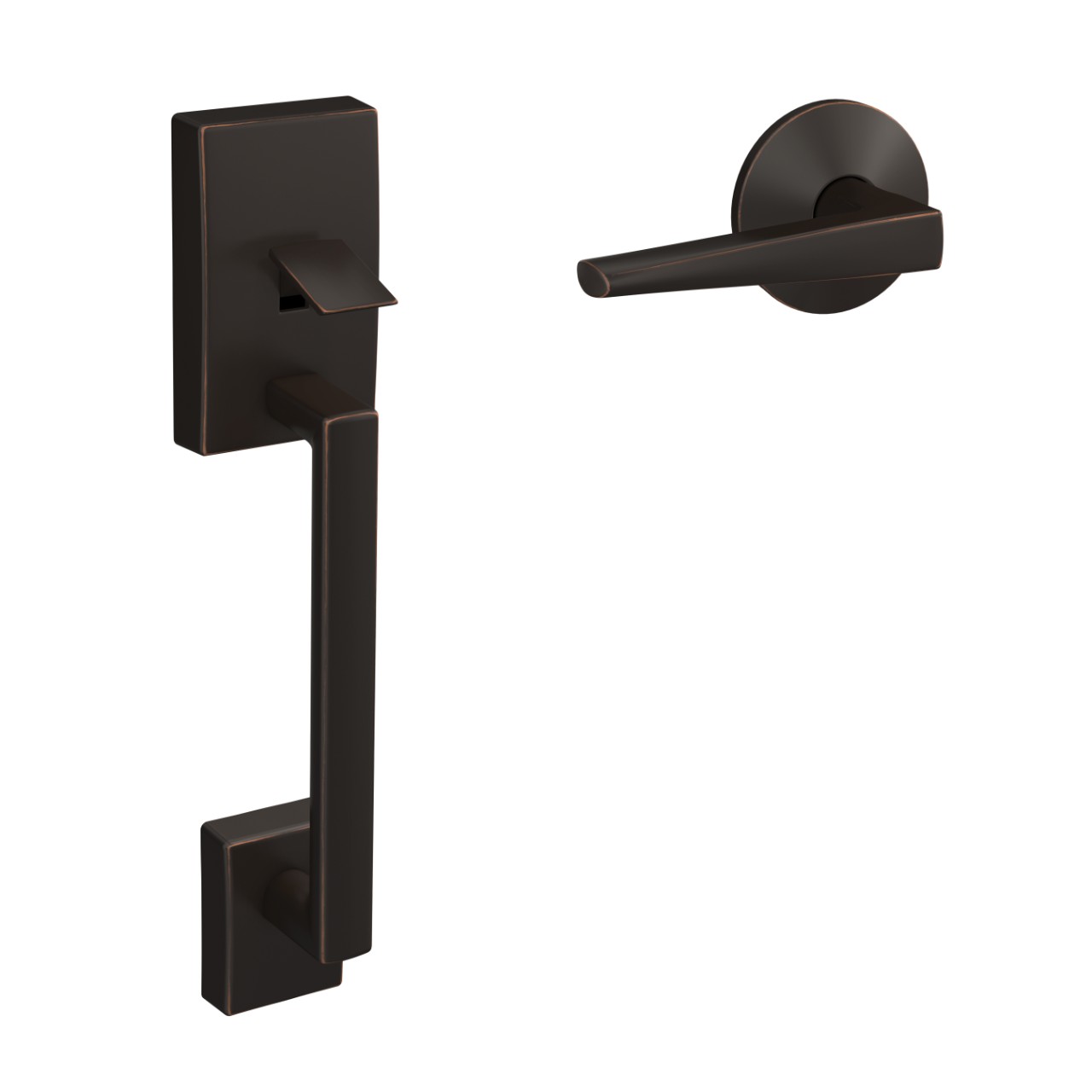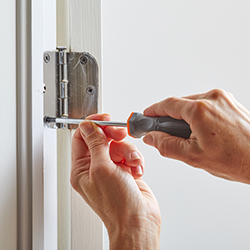

A squeaky hinge can annoy even the most patient person. That’s not the only time a door can make noise and cause a disruption, though. Whether you’re trying to make your home office quieter for focus or don’t want to wake up the baby when you sneak out of the nursery, try these hacks for making a loud door quiet.
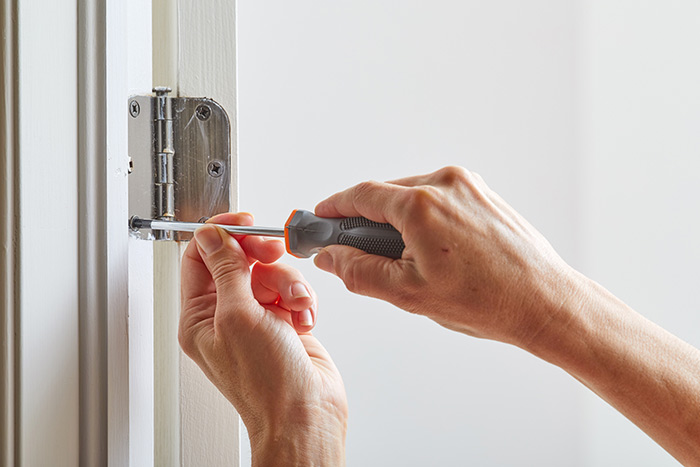
Quiet door knobs and levers
You probably don’t notice how much sound your door knobs or levers make until you’ve just put the baby to bed and are trying to close the door without waking them. Perhaps the best way to ensure quiet door hardware is by choosing those made with quality materials.
Springs that are too tight or too loose, for example, can cause a lever to rattle. This will likely only get worse as the interior mechanisms age and wear. To avoid this, look for door hardware that has earned the highest industry ratings, particularly an A in Durability from the BHMA. The A, or Best, rating means you can be confident that the lever, knob or lock will stand up to the test of time and continue to work as well in year 20 as it did the day you installed it.

Muted latches
If you’re unsure about door hardware terms, the latch is the piece that extends from the door into the edge of the jamb and keeps the door closed. It can squeak or make other noises when it rubs against the strike plate.
One solution is to spray the latch with a metal lubricant such as WD-40. Turn the door knob or lever as you do so to work the lubricant into the components. This should help if the squeak is a result of dry or rusted metal.
You might also adjust the strike plate on the door jamb. To figure out where the latch and strike plate are rubbing, apply chalk or lipstick to the latch. Open and shut the door, then inspect the strike plate. Based on where the residue is, you now know which direction to reposition the plate. This may be as simple as unscrewing the strike plate and re-installing it in the proper location.
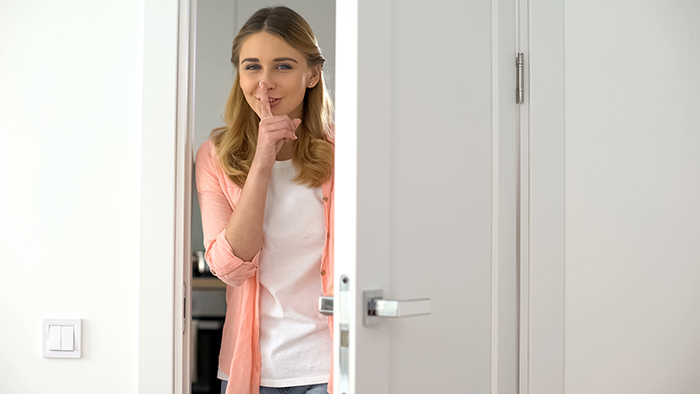
Soundless door alignment
Sometimes the latch rubs because the door is out of alignment. It’s not actually the latch’s fault at all. A door can become misaligned due to lose hinges – more on that in a minute – or because the door itself has warped or expanded. This is most common with exterior doors that are exposed to changes in temperature and humidity.
The first step to fixing your door alignment is to identify the root of the problem. Our guide to what to do when your new lock doesn’t fit your door will walk you through some common door alignment issues and how to fix them.
hushed hinges
Hinges have a bad reputation when it comes to noisy doors. We can thank scary movies for that. Even Schlage got in on it with this 1987 commercial for the now-discontinued Schlage Security System. But fixing a squeaky hinge doesn’t have to be a nightmare. You can use WD-40 again, just like on your latch, or try other household items to quiet a squeaky hinge.
If the creaking is due to door misalignment – you might also notice that the door doesn’t close all the way or sticks when you try to open it – try tightening the screws on the hinges. Tighten them a little bit at a time and test your progress with a level as you go.
A slamming door could mean that the hinges are worn beyond repair. Lubricating them and tightening the screws won’t make a difference. In this case, you’ll need to replace the hinges. It’s an easier DIY job than you might think since there’s no need to remove the door. Simply replace one hinge at a time, starting at the top of the door frame, using a level to check the door alignment after you install each one.
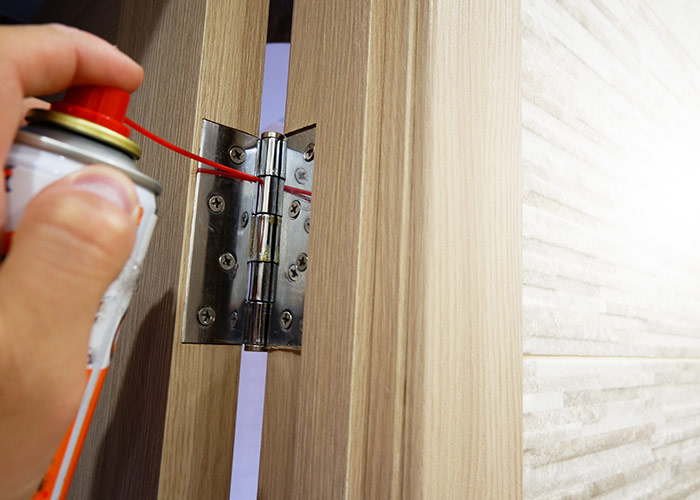
silent door frames
If everything is aligned properly and in good condition but the door still shuts or slams too loudly, use foam or rubber tape around the door frame. Small felt pads at the top and bottom of the frame also work. They serve as a literal cushion to soften the blow of the door hitting the frame.
why quiet door hardware is important
Fixing squeaks and creaks has a range of benefits beyond just being less annoying. We already mentioned how quiet door hardware can help keep a fussy infant from waking up. And if you have a newborn at home, you know everyone – Mom, Dad, Baby – feels better when they’re rested. Even if you’re an empty nester, a quiet door can help avoid midnight disruptions if someone gets up to go the bathroom or make a snack. And the same goes if one of you is an early riser or comes in late after working second shift.
A quiet door can even help you heal faster if you’ve been sick or injured. Many healthcare studies, like this one from the University of Vermont Medical Center, have found that “noise plays a negative role in healing and that decreasing noise in patient care areas aids in healing processes and helps facilitate speedier recoveries for patients.”
And don’t discount the ways a quiet door can help improve focus and productivity, especially when we’re talking about closing off your home office. Fewer distractions might be exactly what you need to finish those monthly reports without a headache.
For more ways to turn your home into a haven, from making your house healthier for your immune system to creating a space for mental calm, turn to the Schlage blog.
Unlock more ideas
Never miss a beat - get the latest product updates, style tips and DIY tutorials sent right to your inbox.
